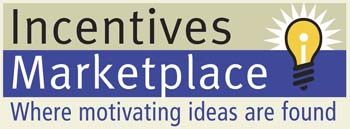Top 7 Employee Rewards Programs That Drive Engagement and Retention

In today’s competitive business landscape, attracting and retaining top talent is more challenging than ever. One proven strategy to enhance employee satisfaction and loyalty is the implementation of effective employee rewards programs. These programs not only recognize and appreciate employees’ contributions but also play a pivotal role in boosting engagement and reducing turnover.
The Importance of Employee Rewards Programs
Employee rewards programs are structured initiatives designed to acknowledge and reward employees for their performance, dedication, and contributions to the organization. Such programs are essential for several reasons:
- Enhancing Company Culture – A well-implemented rewards program fosters a positive work environment where employees feel valued and motivated.
- Reducing Turnover – Recognizing and rewarding employees can significantly decrease turnover rates, as employees are more likely to stay with an organization that appreciates their efforts.
- Boosting Engagement – Regular recognition leads to higher levels of employee engagement, resulting in increased productivity and commitment to organizational goals.
- Attracting Top Talent – Companies known for their robust rewards programs are more attractive to potential employees, giving them a competitive edge in recruitment.
Key Features of Successful Rewards Programs
For a rewards program to be effective, it should encompass the following features:
- Clear Objectives – The program should align with the organization’s goals and clearly define what behaviors or achievements are being recognized.
- Transparency – Employees should understand how the program works, including the criteria for earning rewards and the types of rewards available.
- Inclusivity – The program should be open to all employees, ensuring that everyone has an equal opportunity to be recognized.
- Timely Recognition – Rewards should be given promptly to reinforce the desired behavior or achievement.
- Variety of Rewards – Offering a mix of monetary and non-monetary rewards can cater to diverse employee preferences.
Customizing Rewards for Diverse Teams
In today’s diverse workplace, a one-size-fits-all approach to rewards may not be effective. It’s essential to tailor rewards to meet the varied preferences and needs of employees. While some employees may value monetary bonuses, others might prefer additional time off, professional development opportunities, or public recognition. Understanding your team’s demographics, cultural backgrounds, and individual preferences can help in designing a rewards program that resonates with everyone.
Top 7 Employee Rewards Programs to Consider
Implementing a well-structured rewards program can significantly impact employee satisfaction and retention. Here are seven exemplary programs that have proven effective:
1. Peer-to-Peer Recognition Programs
These programs empower employees to recognize and reward their colleagues’ efforts, fostering a culture of mutual appreciation. Platforms like Bonusly and Kudos allow employees to send recognition points or messages to colleagues, which can be redeemed for rewards.
2. Professional Development Opportunities
Investing in employees’ growth by offering training, workshops, or tuition reimbursement not only enhances their skills but also shows the organization’s commitment to their career progression. Companies like Disney and Starbucks provide tuition assistance programs to support continuous learning.
3. Wellness Programs
Providing wellness incentives, such as gym memberships, mental health days, or wellness workshops, promotes a healthy work-life balance and shows employees that their well-being is a priority. Organizations that prioritize employee wellness see reduced absenteeism and higher productivity.
4. Flexible Work Arrangements
Offering options like remote work, flexible hours, or compressed workweeks can be a significant reward for employees seeking better work-life integration. Employees appreciate the autonomy and balance that come with flexible scheduling.
5. Experiential Rewards
Providing unique experiences, such as tickets to events, adventure activities, or retreats, can create lasting memories and serve as a token of appreciation. Companies that offer experiential rewards tend to have higher employee engagement and job satisfaction.
6. Monetary Bonuses and Stock Options
Financial incentives, such as performance-based bonuses or stock options, directly reward employees for their contributions to the company’s success. Apple, for instance, offers cash bonuses and stock options as part of its employee recognition program.
7. Public Recognition Platforms
Creating platforms where employees’ achievements are publicly acknowledged can boost morale and encourage others to excel. This can be done through company-wide meetings, newsletters, or internal social media channels.
Choosing the Right Rewards Program for Your Company
Selecting the most suitable rewards program requires careful consideration of your organization’s culture, values, and the unique needs of your employees. Here are some steps to guide the process:
1. Assess Organizational Goals
Ensure that the rewards program aligns with your company’s objectives and promotes behaviors that drive success.
2. Gather Employee Feedback
Conduct surveys or focus groups to understand what types of rewards are most valued by your employees.
3. Evaluate Budget Constraints
Determine the financial resources available and design a program that offers meaningful rewards without compromising the organization’s financial health.
4. Pilot the Program
Start with a small-scale implementation to test the program’s effectiveness and make necessary adjustments before a full rollout.
5. Monitor and Adjust
Continuously assess the program’s impact on employee engagement and retention and be prepared to make changes as needed.
ROI of Employee Rewards Programs
Investing in employee rewards programs can yield significant returns for organizations. The benefits include:
- Increased Productivity – Engaged and motivated employees are more productive, leading to better organizational performance.
- Reduced Turnover Costs – Lower turnover rates mean reduced costs associated with recruiting, onboarding, and training new employees.
- Higher Employee Satisfaction – Recognized employees tend to be happier and more satisfied with their jobs, leading to a more positive workplace culture.
- Enhanced Employer Branding – Companies with strong rewards programs attract top talent and build a positive reputation in the industry.
Partner with Incentives Marketplace for Your Employee Rewards Program
Implementing an effective employee rewards program requires expertise, resources, and ongoing support to ensure success. At Incentives Marketplace, we specialize in helping businesses engage, inspire, and reward their employees, channel partners, and customers.
For over 21 years, we have partnered with companies of all sizes—from Fortune 500 corporations to regional businesses—to create impactful employee rewards programs. We offer:
- Over 13,000 incentive options, carefully selected by experts.
- A results-driven approach, where we only succeed when our clients do.
- Seamless fulfillment, shipping over 1 million awards each year.
- Expert guidance to tailor programs that fit your workforce needs.
If you’re ready to boost employee engagement and retention with a customized rewards program, contact us today. Let’s create a workplace where employees feel valued and motivated to perform at their best.
